Have you ever woken up to find your cat silently perched on your chest, staring intently at your face? It can be both endearing and a little unsettling. Some feline companions seem to take their nighttime watch duties very seriously, almost as if they’re the world’s tiniest, furriest sentinels. But what’s really going on in those mysterious little minds? Let’s pull back the curtain on this curious behavior and discover what it might mean when your cat becomes your midnight observer.
The Ancient Instincts Behind the Stare

Cats have evolved from wild ancestors who needed to stay alert to survive. Their instinct to observe their environment, especially during vulnerable times, is deeply ingrained. When your cat watches you sleep, it may be tapping into those ancient survival skills. It’s like your kitty is on guard duty, making sure you’re safe while you’re most defenseless. This behavior can be a sign that your cat feels protective of you, acting like a tiny, whiskered guardian. The way cats position themselves—often high up or close to your head—is also a throwback to how wild cats would choose secure spots to watch for danger. So, that intense gaze could simply be your cat’s way of keeping tabs on its favorite human.
Love, Attachment, and Feline Affection

Some experts believe that a cat watching you sleep is a sign of deep affection. Cats form strong bonds with their people, and watching you is a way for them to feel connected. Just as you might peek in on a loved one to make sure they’re okay, your cat may be doing the same. This close observation can also be a sign that your cat trusts you completely, choosing to stay near you when you’re at your most vulnerable. It’s their quiet way of saying, “I care about you.” If your cat purrs or kneads while watching, it’s a clear sign of contentment and attachment.
Curiosity: The Cat’s Signature Trait
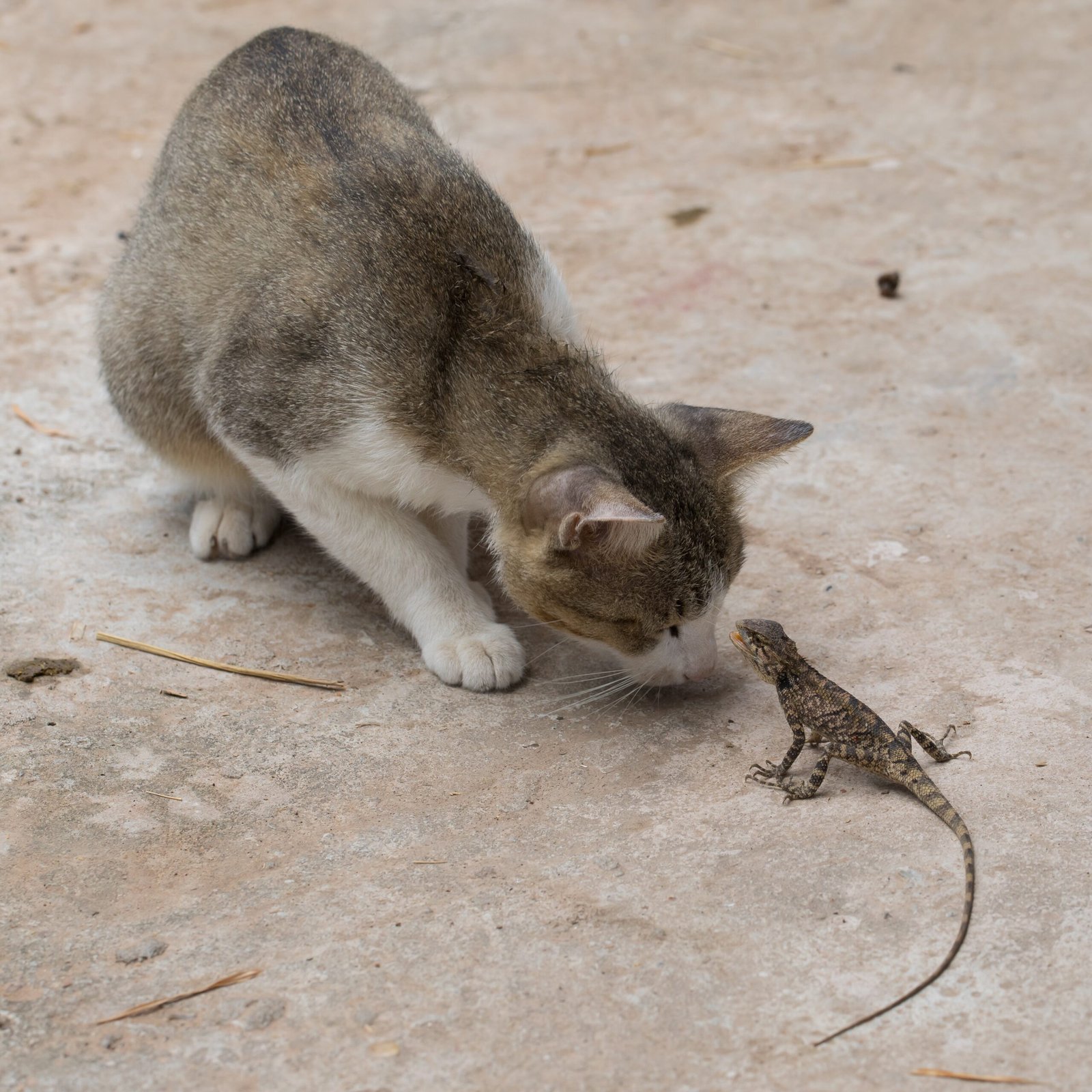
Cats are famously curious creatures. The sight and sound of you sleeping—twitching, turning, or even talking in your sleep—can be endlessly fascinating to them. Your cat might be trying to figure out what’s happening or waiting for you to wake up and provide some entertainment. Sometimes, it’s not about deep meaning at all, but simple curiosity. Maybe your cat wonders why you stay still for so long, or perhaps it wants to study your sleeping face like a living, breathing puzzle. This curiosity is a huge part of what makes cats so endearing—and occasionally a bit weird.
Security and Comfort from Your Presence
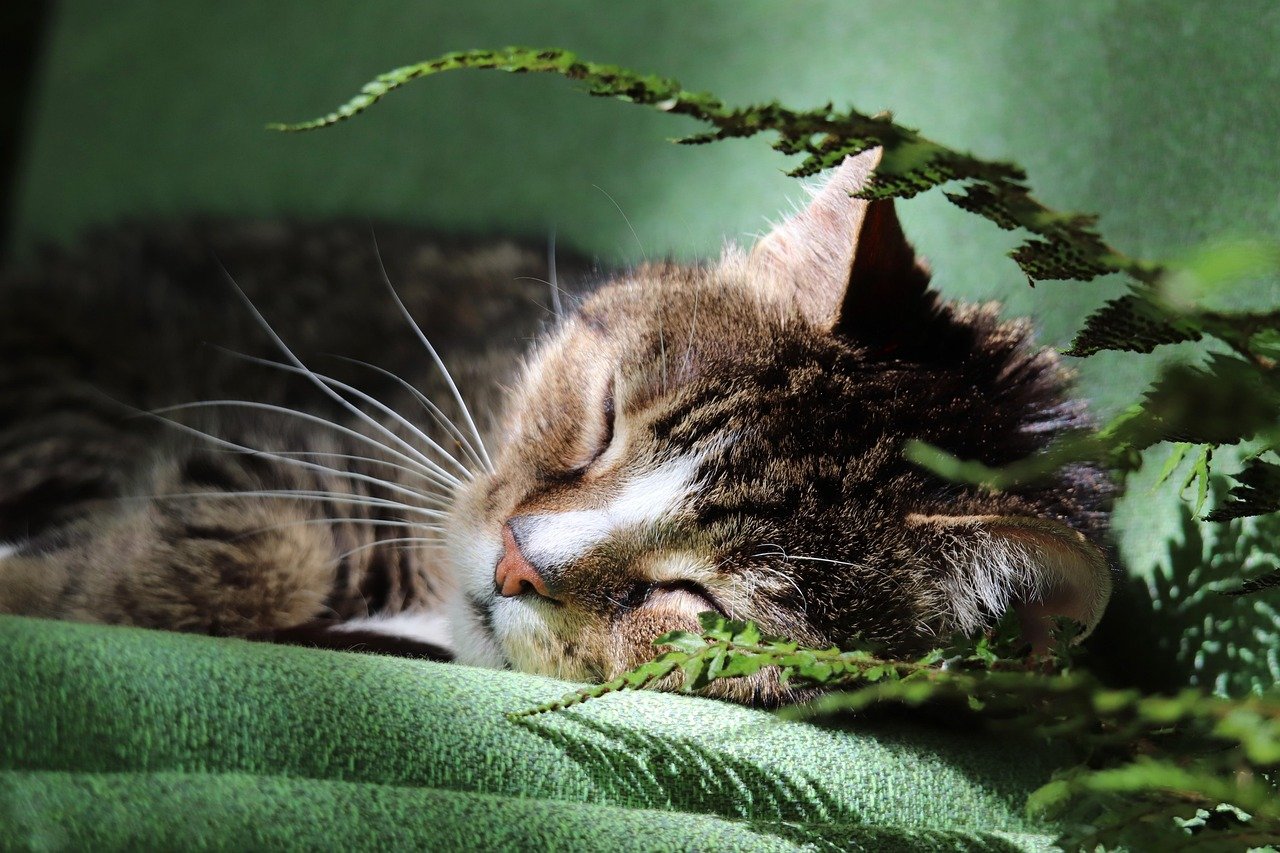
Your presence can be a major source of security for your cat. Cats feel safest when they’re close to someone they trust, especially in the quiet hours of the night. Watching you sleep can be reassuring, like a child checking that a parent is still nearby. This behavior might be especially noticeable in cats who have experienced anxiety or changes in their environment. For them, your sleeping form is a comforting anchor in an unpredictable world. When your cat curls up close and watches over you, it’s a sign that you’re their safe place.
The Role of Routine in Feline Behavior

Cats thrive on routine, and your sleep schedule becomes part of their daily rhythm. Many cats will start to associate your bedtime with their own downtime. Watching you sleep might be your cat’s way of winding down, too. It could even be part of a nightly ritual—a predictable event that helps them feel in control of their world. If your cat seems to appear at your bedside every night, it’s likely that this has become a comforting routine for them. They may even anticipate the moment you drift off, seeing it as their cue to settle in and observe.
Hunger and Attention-Seeking Tactics
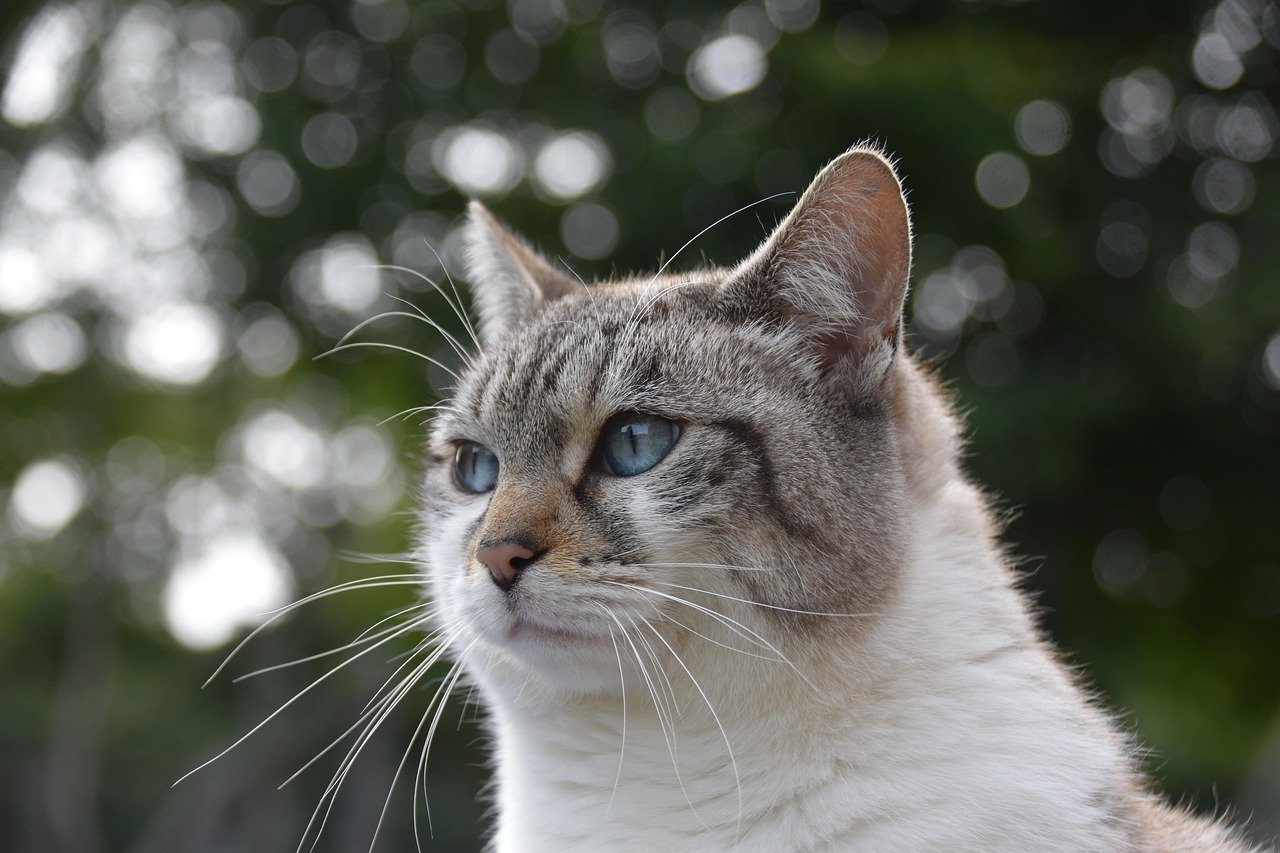
Sometimes, a cat’s watchful stare isn’t as mysterious as it seems. Cats are clever and learn quickly how to get what they want. If your cat is hungry or wants attention, watching you sleep could be a way to get you moving. Some cats will escalate from staring to gentle paw taps or soft meows if their silent vigil doesn’t work. It’s a subtle, patient tactic—waiting for you to wake up and fulfill their needs. So, if you’re regularly greeted by those wide eyes in the morning, your cat might just be plotting its next breakfast.
Nighttime Activity and the Feline Body Clock

Cats are crepuscular, meaning they’re most active at dawn and dusk. While you’re deep in dreamland, your cat may be wide awake, prowling or playing. Watching you sleep could simply be an activity to pass the time during these alert hours. For some cats, the quiet of the night is the perfect time to observe without interruption. If your cat seems particularly energetic at night, it’s probably following its natural rhythms—and you’re just the most interesting thing in the room.
Scent and Familiarity: A Cat’s World
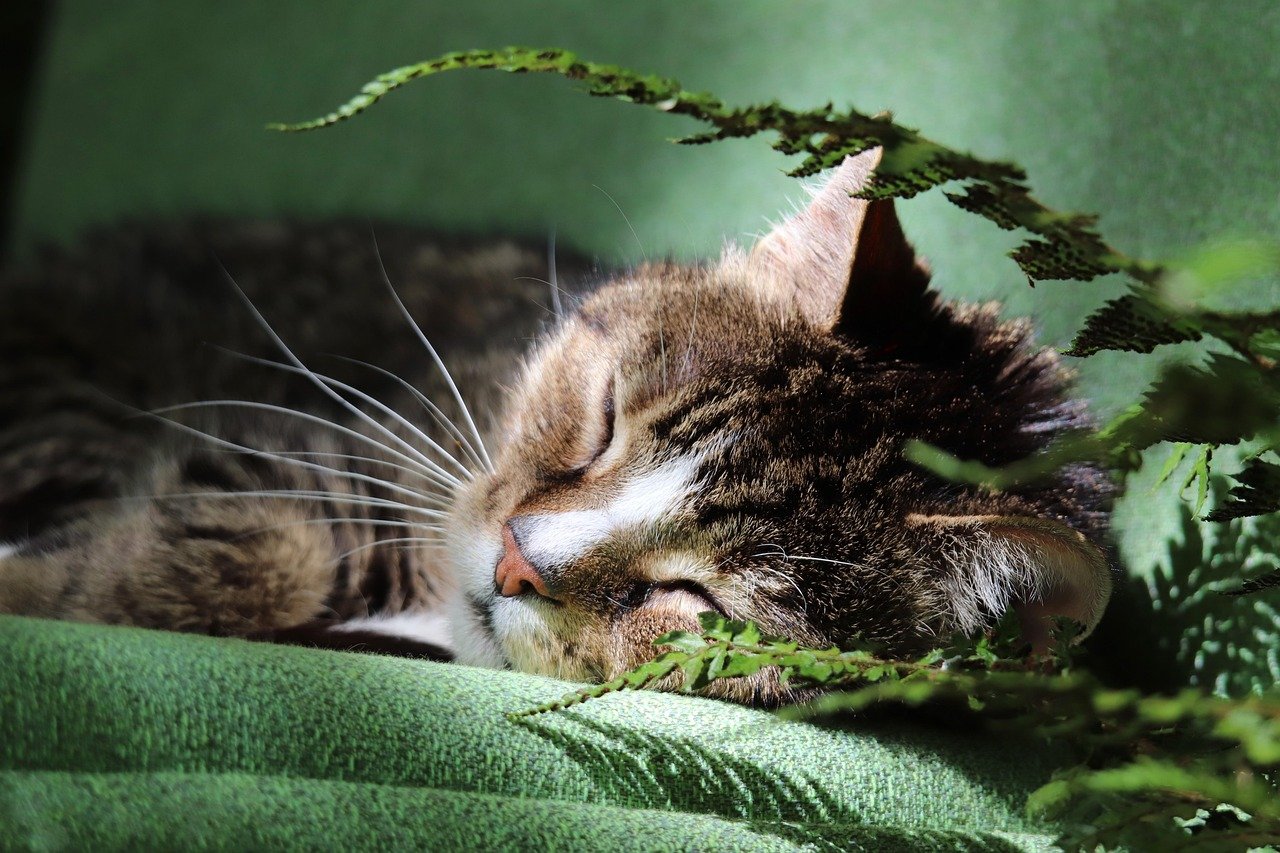
Cats experience their world largely through scent. When a cat watches you sleep, it’s also soaking in your familiar smell. Your scent is strongest where you rest, and for your cat, that’s a comforting, reassuring presence. Some cats will even sniff your face or hair while you sleep, further strengthening their bond with you. This close proximity is a mark of trust; your cat feels safe enough to be near you when you’re unconscious and unaware. It’s a quiet way for your cat to maintain its connection to you, even in the stillness of night.
Health Concerns: Monitoring for Changes

Believe it or not, some cats can detect changes in their owners’ health. There are countless stories of cats alerting their humans to illness or distress just by acting differently. If your cat seems to be watching you more closely than usual, it might sense something out of the ordinary. Cats have keen senses and can pick up on subtle cues like changes in breathing, temperature, or even mood. While it’s not always the case, your cat’s watchful eye could be a sign that it’s attuned to your well-being in ways we’re only beginning to understand.
Territorial Behavior and Personal Space
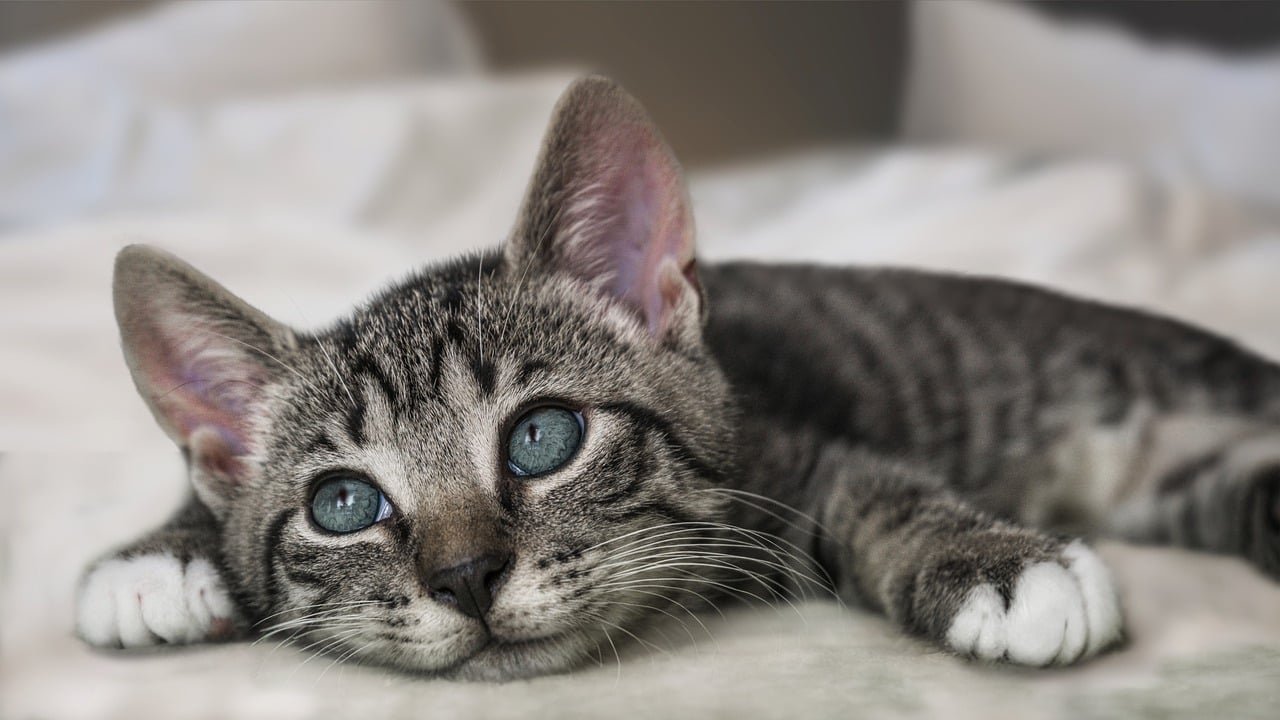
Cats are territorial animals, and your bed is part of their domain. Watching you sleep can be your cat’s way of keeping an eye on its territory and the creatures within it (that’s you!). By observing you, your cat is making sure everything is as it should be. It’s not about dominance or control, but rather a way to maintain order in their world. Some cats may even patrol the bed or room before settling down, doing a nightly “security check” to ensure all is well.
Social Hierarchy and Respect

In multi-pet households, the way your cat behaves at night can offer clues about social dynamics. Cats who watch you from a distance might be showing respect for your space or the established order in the home. Alternatively, a cat who sits right on your chest could be claiming a privileged spot, showing trust and affection. These behaviors can shift over time, reflecting changes in your relationship or the broader household hierarchy. Observing your cat’s nighttime habits can offer insight into these subtle, ever-changing dynamics.
Imitation and Learning by Observation
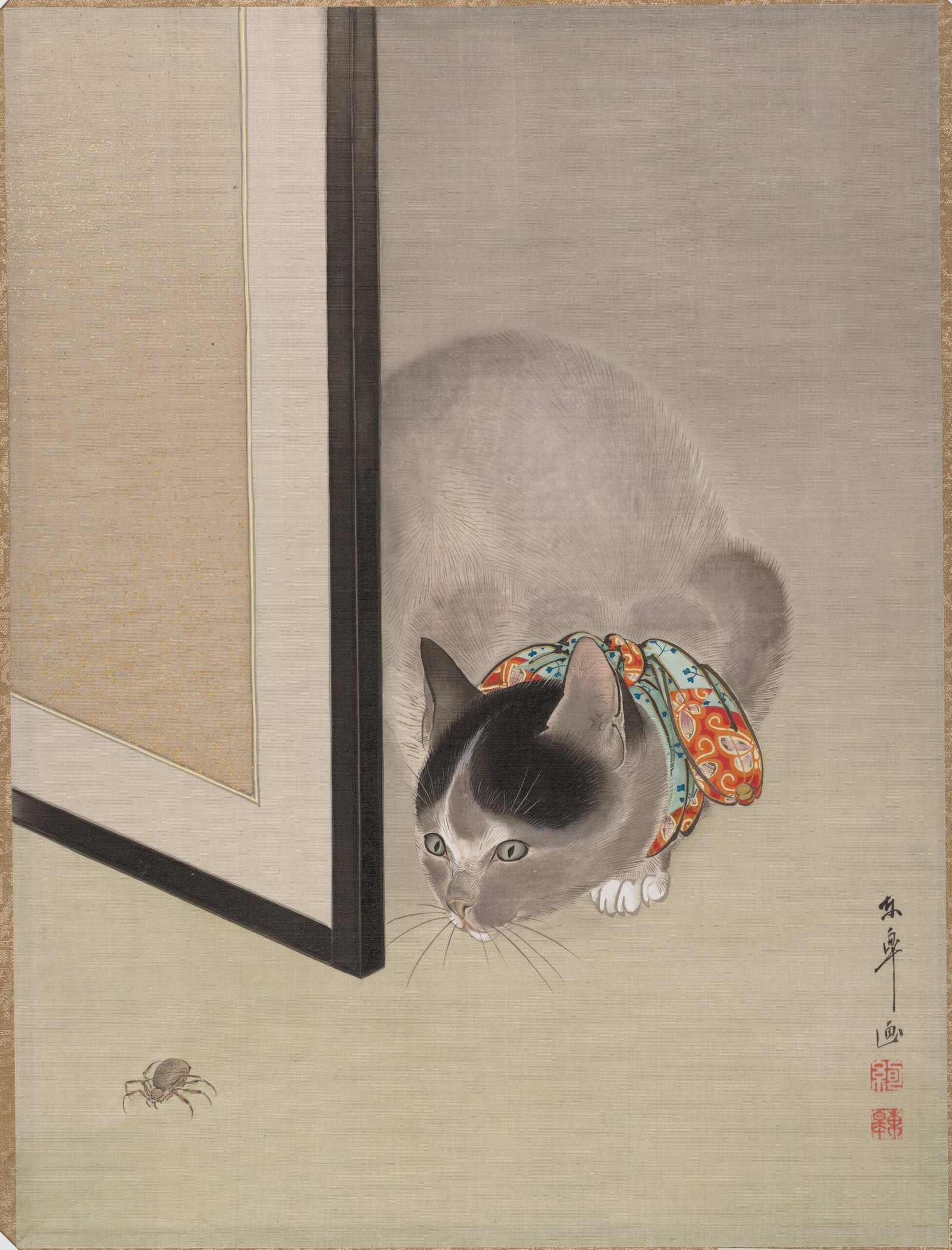
Cats are keen observers and often learn by watching others. Your sleeping habits might just fascinate your cat, prompting it to mimic your restful state. Some cats will curl up and nap alongside you, using your behavior as a guide for their own relaxation. Others might simply be studying you, learning the routines and rhythms of your daily life. This observational behavior helps cats adapt to their environment and bond with their humans, building a shared sense of routine and comfort.
Emotional Comfort and Mutual Reassurance

There’s something deeply soothing about having a living presence nearby, even if you’re asleep. For your cat, watching you sleep can be a way to seek comfort and reassurance. The sound of your breathing, the warmth of your body, and the rhythm of your sleep are all sources of security. In turn, your cat’s presence can be calming for you, even if you’re only subconsciously aware of it. This mutual reassurance creates a quiet, invisible bond that grows stronger with each passing night.
The Influence of Past Experiences
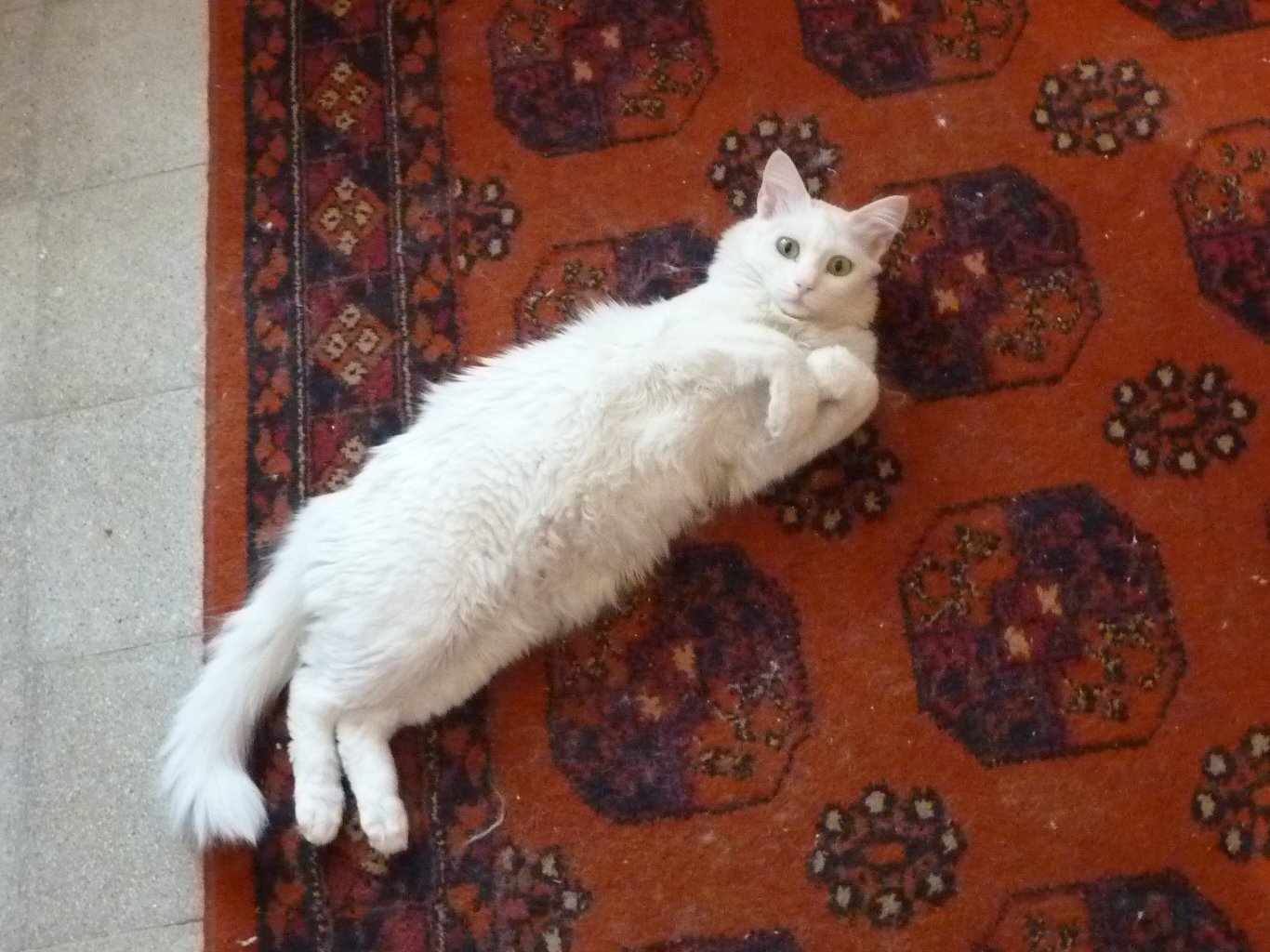
A cat’s history can shape its nighttime habits. Cats who were raised in busy shelters, or who have experienced trauma, may feel the need to keep a closer eye on their humans. Watching you sleep might be their way of staying connected and ensuring they’re not alone. Over time, as they feel safer and more secure, this behavior may lessen—or it may become a cherished part of your nightly routine. Every cat is different, and their unique backgrounds play a big role in how they interact with you, even while you sleep.
Playfulness and Mischief at Midnight

Sometimes, a cat’s stare is less about affection and more about plotting its next move. Cats are notorious for their bursts of energy in the middle of the night. Watching you sleep could be the prelude to a playful pounce or a gentle paw to the face. For some cats, your slumber is an irresistible invitation to play. This mischievous streak is part of what makes living with cats so endlessly entertaining (and occasionally exhausting). If you wake up to a feline “attack,” you’re not alone.
Responding to Changes in Your Routine

Cats are incredibly sensitive to changes in their environment and your habits. If you’re sleeping more, less, or at different times than usual, your cat may become more attentive. Watching you sleep could be your cat’s way of adapting to these shifts, making sure everything is still okay. Even small changes—like a new pillow or a different bedtime—can prompt your cat to reassess and observe more closely. Their vigilant nature means they’re always keeping tabs on the things that matter most to them.
Communication Without Words
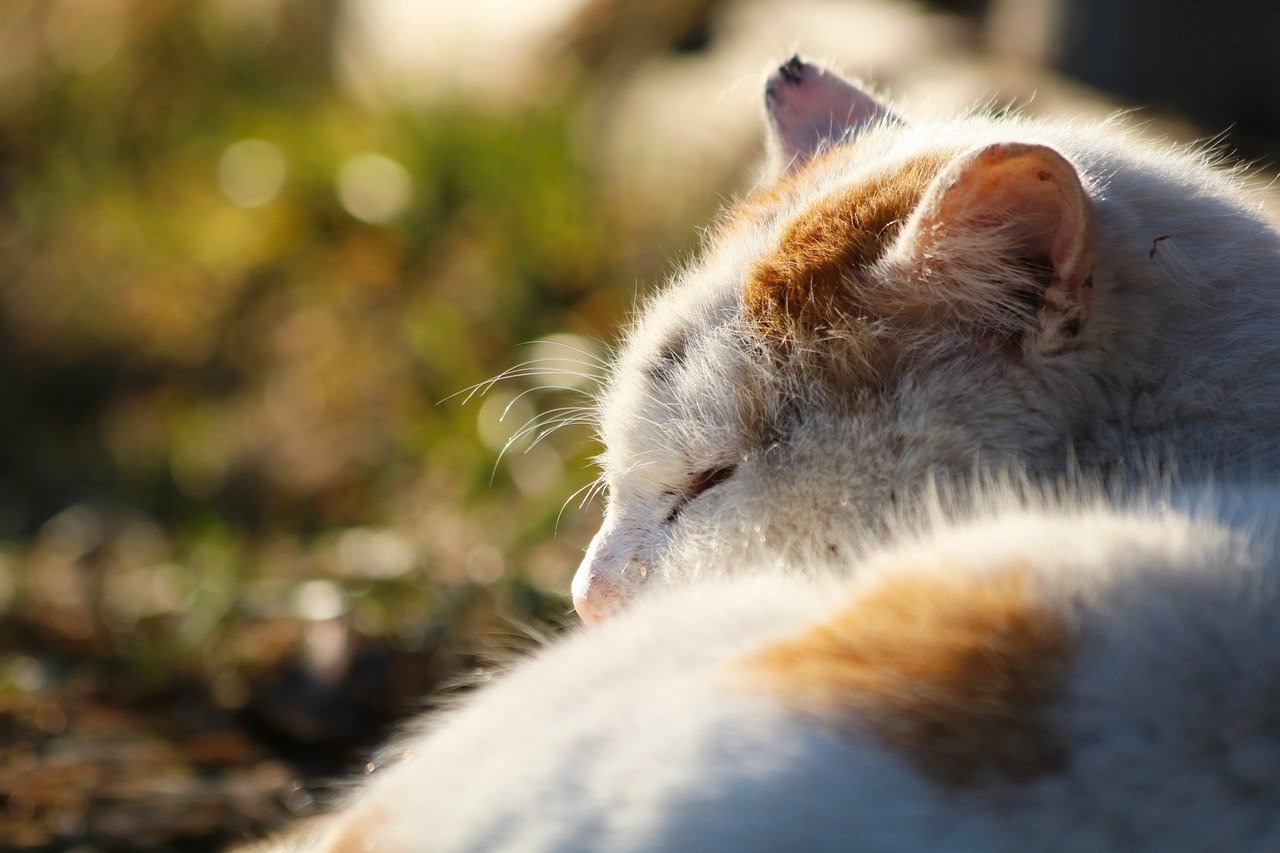
Cats communicate in subtle, often silent ways. Watching you sleep is one of those quiet forms of communication. Your cat might be trying to send you a message—“I’m here,” “I care,” or “I want to be near you.” These nonverbal cues are easy to miss, but they’re an important part of the human-cat relationship. Paying attention to your cat’s nighttime behavior can help you understand its needs and emotions, deepening your bond.
Signs of Stress or Anxiety
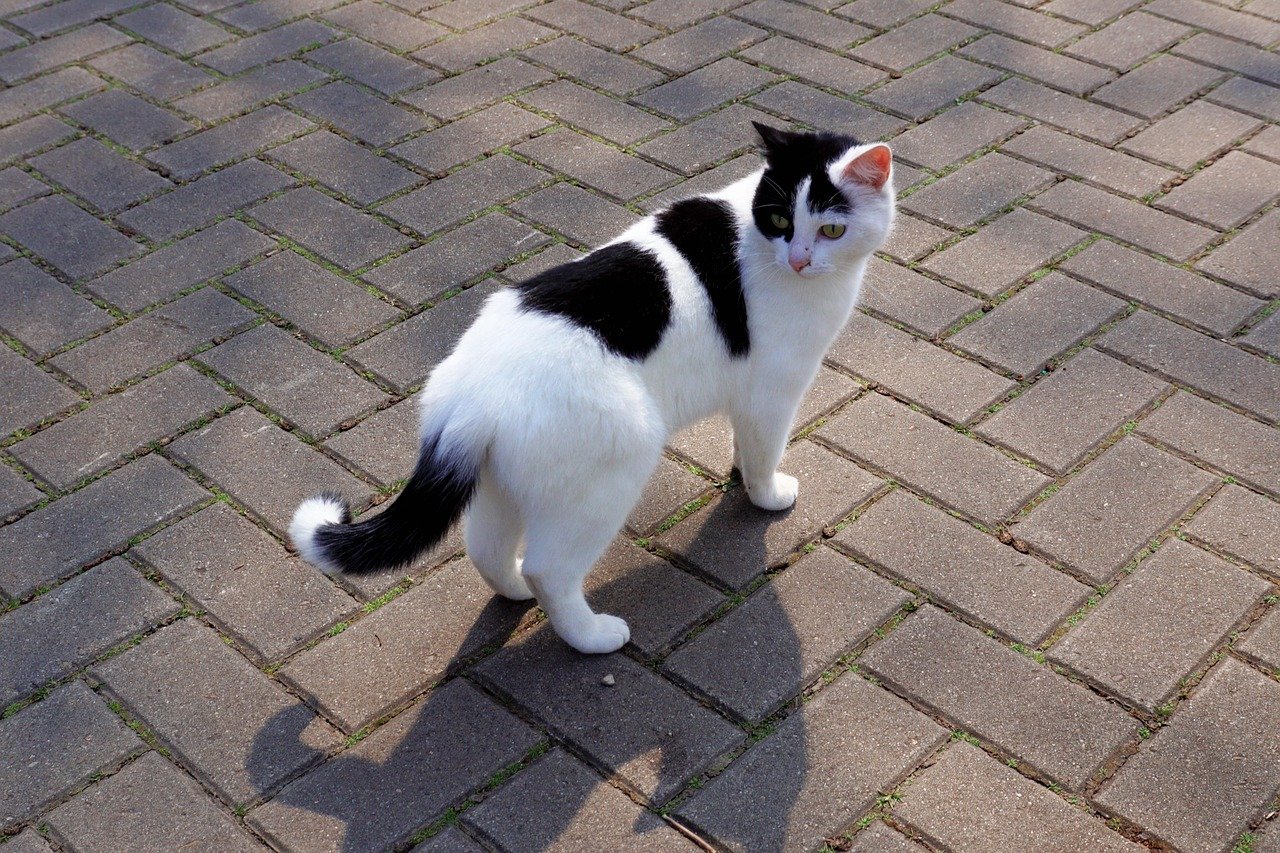
If your cat seems unusually fixated on watching you sleep, it could be a sign of stress or anxiety. Cats are sensitive creatures, and changes in the household—like new pets, visitors, or loud noises—can make them feel uneasy. Watching you sleep might be a coping mechanism, a way to find comfort and stability. If you notice other signs of stress—like hiding, excessive grooming, or changes in appetite—it’s worth considering how you can help your cat feel more secure.
When to Be Concerned

Most of the time, a cat watching you sleep is completely harmless. However, if this behavior is accompanied by other changes—like aggression, withdrawal, or health issues—it might be time to consult a veterinarian. Sudden shifts in behavior can signal underlying medical problems or emotional distress. Trust your instincts; you know your cat better than anyone. Taking action early can help ensure your feline friend stays happy and healthy.
Enjoying the Quirks of Cat Companionship

Ultimately, a cat watching you sleep is just one of the many quirks that make sharing your life with a feline so special. It’s a blend of ancient instinct, deep affection, and a dash of playful mystery. Whether your cat is acting as a tiny guardian, a curious observer, or a mischievous night owl, there’s something magical about the connection you share. Next time you open your eyes to find those glowing orbs peering back at you, remember—you’re never truly alone. Isn’t it wild how a simple stare can mean so much?
Hi, I’m Bola, a passionate writer and creative strategist with a knack for crafting compelling content that educates, inspires, and connects. Over the years, I’ve honed my skills across various writing fields, including content creation, copywriting, online course development, and video scriptwriting.
When I’m not at my desk, you’ll find me exploring new ideas, reading books, or brainstorming creative ways to solve challenges. I believe that words have the power to transform, and I’m here to help you leverage that power for success.
Thanks for stopping by, Keep coming to this website to checkout new articles form me. You’d always love it!






